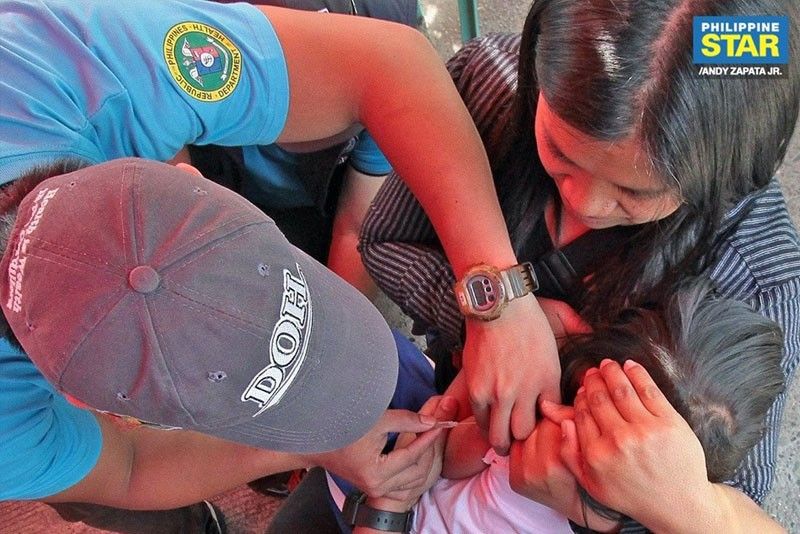Immunization gaps threaten gains on measles — WHO

MANILA, Philippines — The World Health Organization (WHO) has expressed concern over the measles outbreaks in the Western Pacific Region, saying two-thirds of these cases came from the Philippines.
In a statement, the WHO-Western Pacific Region Office (WPRO) said the region had “historically low levels of measles cases and no major outbreaks in 2017” as it noted that this “landmark decline” was achieved through steady efforts to vaccinate all children against measles.
“So far this year, the Philippines has reported 23,000 cases with 333 deaths – already more than all of last year. Tragically, most of the cases were among children under five years old,” WHO added.
According to WHO director for WPRO Takeshi Kasai, they have seen “how swiftly and easily measles can make a comeback in communities where not enough children have been immunized” in recent months.
The measles outbreaks, it added, are “putting babies, children and young people at risk and threatening progress towards wiping out the disease.”
Measles is a highly infectious disease that can cause debilitating complications, including encephalitis, severe diarrhea and dehydration, pneumonia, ear infections and permanent vision loss.
Data also showed that nine countries and areas in the region – Australia, Brunei Darussalam, Cambodia, Hong Kong SAR (China), Japan, Macao SAR (China), New Zealand, the Republic of Korea and Singapore – have been verified as having eliminated measles. Elimination means there has been no prolonged local transmission of the virus for at least three years.
But despite this, WHO cautioned that as long as the virus is circulating elsewhere, people who are not immunized remain at risk of infection from an imported case.
This in turn can lead to an outbreak or re-establishment of transmission.
So far this year, Australia, Cambodia, China, Hong Kong, Japan, the Lao People’s Democratic Republic, New Zealand, Republic of Korea, Singapore and Viet Nam have all recorded measles cases.
“The resurgence of measles around the world has resulted in increased importation of the virus to several countries in our region,” Kasai noted as he stressed that WHO wants to stop “large-scale outbreaks resulting from those importations.”
Based on WHO guidelines, at least 95 percent of eligible children should receive two doses of measles vaccines for a community to be protected.
“Measles spreads like wildfire... It is the most contagious human disease and it’s very good at seeking out and spreading among even small groups of people who are not immune,” Kasai warned.
Since the year 2000, more than 21 million lives have been saved worldwide through measles immunization.
In 2017 in the Western Pacific Region, 97 percent of children received a first dose of measles vaccine, compared to 85 percent in 2000. On the other hand, 94 percent got the required second dose, compared to two percent in 2000.
- Latest
- Trending



























